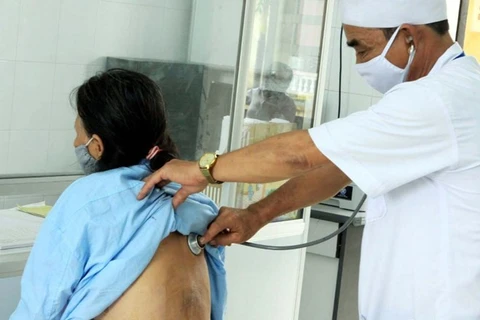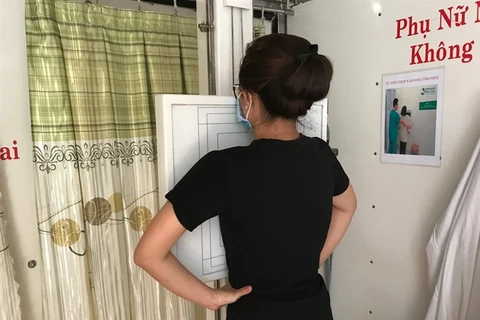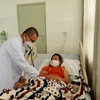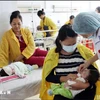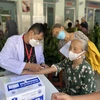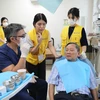Hanoi (VNA) – Vietnam is now able to treat all strains of multi-drug-resistant and totally drug-resistant tuberculosis (TB) with short-term treatment regimens using newly accessible drugs.
The information was released by Associate Prof. Dr. Nguyen Viet Nhung, head of the National TB Prevention Programme, during his meeting with Dr. Tereza Kasaeva, Director of the World Health Organisation’s (WHO) Global TB Programme, in Hanoi on July 24.
Nhung, who is also Director of the National Lung Hospital, said the National TB Prevention Programme expects to admit some 3,420 patients suffering from drug-resistant TB in 2018, with another 4,050 in 2019, and 4,680 in 2020. The programme looks to cover all drug-resistant TB patients in the future in order to control the spread of the disease in the community.
The official told his guest that new technologies, drugs, and treatment methods have been used effectively in TB treatment in Vietnam.
Besides this, 50 specialised hospitals, and domestic and foreign partners have created a strong TB prevention and control network in the country, he stressed.
According to the official, Vietnam ranks 16th among the top 30 countries for total TB patients, and 13th in the rankings of drug-resistant TB patients.
There were an estimated 126,000 new TB cases and about 13,000 deaths due to TB in Vietnam in 2017, which was down from the 16,000 deaths in 2016, said Nhung, citing from a report released by the WHO.
However, the fatality rate still remains drastically high, even when compared to traffic accident deaths, he said, adding that around 5,500 Vietnamese people catch the drug-resistant strain of TB each year.
More than 100,000 TB patients are treated each year, with over 90 percent of new cases managing to beat the disease. Of note, more than 75 percent of the 5,827 drug-resistant TB cases in 2017 recovered from the disease, higher than the global rate of 52 percent, Nhung said.
For her part, Kasaeva suggested Vietnam invest more in its strategy against TB and conduct research studies and innovations in this field, expressing her hope that Vietnam could become a pioneer in establishing a TB research network in the region.
During their working visit to Vietnam from July 24-27, Kasaeva and her entourage are scheduled to have working sessions with centrally-run Vietnamese agencies on TB prevention.
They will also visit the National Lung Hospital, the Hanoi Lung Hospital, the Hai Phong Lung and TB Hospital, and several medical centres in the districts and communes of Hanoi and Hai Phong.–VNA
VNA

